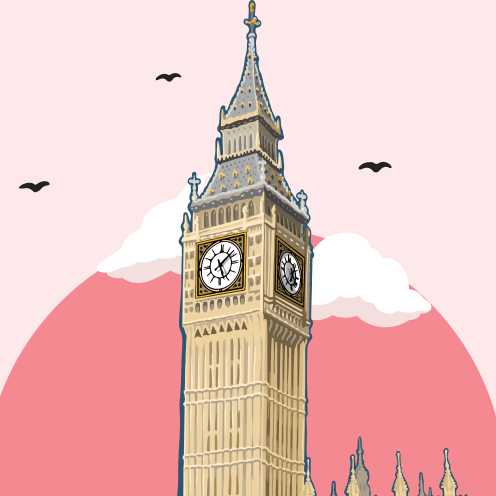Households are going to be hit with a hike in water bills of at least 20 per cent to fix the UK’s “broken” sewage system, the environment secretary has said, sparking a backlash amid fears for vulnerable customers.
On Thursday, independent regulator Ofwat is expected to announce that charges will increase by more than 20 per cent by 2030, which means an average rise of £20 a year per household over the next five years, with the average bill soaring from £448 a year to £542.
Steve Reed acknowledged bill-payers would be “angry” but insisted a rise is necessary to “repair the damage” after years of neglect and under-investment, with promises Labour will “reset our water sector” by fixing pipes and building reservoirs, not paying water chiefs’ bonuses.
Blaming the previous Conservative governments for having “left our water system in ruins”, he wrote in The Telegraph on Saturday: “This week, the independent water regulator will announce water bill rises to repair the damage. The public are right to be angry. Tory recklessness has caused untold damage.”
Consumer groups argued some households will not be able to afford a sharp rise in water bills, and urged water companies to provide more support.
After confirming in July that it would allow costs to increase by 21 per cent, with a view to fund investment in new infrastructure worth £88 billion, Ofwat has been negotiating with 11 providers over their demands to be able to significantly raise bills. Southern Water – supplier of Kent, Sussex and Hampshire – wants to be allowed to increase them by 84 per cent, while scandal-hit Thames Water wants 53 per cent.
The watchdog is unable to confirm any decisions ahead of Thursday’s announcement, however The Independent understands that there will be pressure on households’ water bills. There are even fears Ofwat will end up agreeing to rises well over the 21 per cent that was initially agreed due to the dire state of the industry. However, the regulator has insisted it will deliver a “balanced” package.
Water UK, the industry body, argued bills have fallen in real-terms by around 20 per cent since 2010.
After a succession of sharp utility bill increases for households over recent years, Mike Keil, chief executive of the Consumer Council for Water (CCW), told this newspaper: “There needs to be far greater ambition from some water companies in providing support to households who are not going to be able to afford these large bill rises.
“Companies’ existing plans fall short of meeting the commitment they previously made to end water poverty in England by 2030 and Ofwat should push them harder to deliver on this.”
Tom MacInnes, director of policy at Citizens Advice, added: “We know water firms need to fund investment, but many households will struggle to shoulder these price rises.
“Social tariffs for water – cheaper rates for those who need them – should be the safety net. The problem is there’s a postcode lottery for this support and our advisers report that people often don’t know about the tariffs, or face hurdles applying for them.
“With high bills likely here to stay, the government and suppliers must work together to get people the help they’re entitled to.”
Mr Reed accused the Tories of failing to build new reservoirs and pipes and that sewage spills had left “our rivers, lakes and seas are choked by pollution”. Customers’ money had been used to “line the pockets of executives and shareholders” rather than implement much-needed improvements to the system, he argued.
He pledged to introduce reforms, including ring-fenced money from the rise in charges to be spent on new infrastructre, new legislation on mandatory reporting of sewage leaks to be introduced to the Commons on Monday, with bosses who refuse to cooperate with investigations facing prison, and nine new reservoirs and 8,000km of new pipes to be built over the long-term.
He said: “This is a once in a generation chance to reset our water sector and deliver the change we all want to see. After years of pollution and decline it’s time to invest in new opportunities and restore our clean rivers, lakes and seas.”
Meanwhile, shadow environment secretary Victoria Atkins said: “Labour spent years making promises to the public about improving waterways yet, six months after the election, all they do is talk about the Conservatives. Labour’s lack of energy and action will not wash when bills rise on their watch.
“The Conservatives began the crucial reform to ensure that in the long-term Britain’s water system is clean and sustainable – that requires billions of pounds of private of investment if bill-payers are to be protected. The Government must work out what it’s doing and who will pay for this investment, or our water bills will keep rising under Labour.”
A spokesperson for Water UK said: “We urgently need investment in our water and sewage infrastructure and recent research has shown that there is widespread public support for this.
“We understand increasing bills is never welcome. To protect vulnerable customers, companies have proposed increasing the number of households receiving support with their bills to three million over the next five years.”
An Ofwat spokesperson said: “Our intention is to set a balanced package on Thursday that delivers better services for customers and ensures the sector attracts the investment it needs to deliver cleaner rivers and seas.
“We know that many customers continue to struggle with cost-of-living pressures and need extra help at this difficult time.
“Water companies in England and Wales are planning a significant increase in support for customers struggling to pay. The proportion of customers that receive social tariff support will rise to at least 8% in the 2025-30 period.”
Source: independent.co.uk



